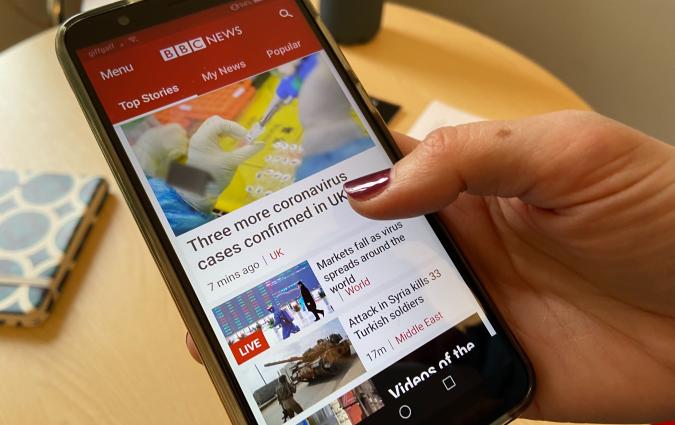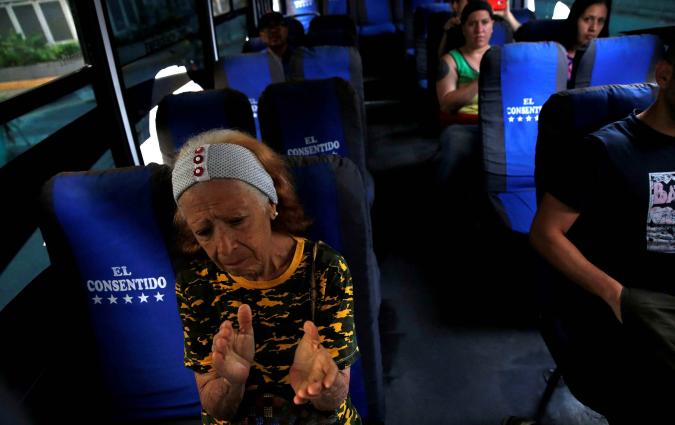As Nigerian broadcasters are fined for airing critical documentaries, press freedom advocates fear the worst is yet to come
On 3 August 2022, the Nigerian government decided to come down hard on broadcaster Trust TV five months after they aired a documentary exposing the increasing attacks of armed bandits across the country. Through the National Broadcasting Commission (NBC), the broadcast industry regulator, the government imposed a fine of N5 million (around $12,000) for running the documentary.
The NBC said the documentary contravened the provisions of the commission by glorifying “the activities of bandits” and undermining “national security.” Trust TV said in a statement that the piece was aired in the public interest and was produced to provide insights into the “intersection of injustice, ethnicity and bad governance as drivers of the conflict” and to explain how citizens have been largely affected by it.
However, there is a glaring disparity in the fine. While the Trust TV documentary was aired on 5 March, a similar documentary on the same topic premiered on the BBC on 24 July. Even though both documentaries exposed the same issue, the Nigerian government fined Trust TV and three other broadcast and satellite channels that aired the BBC documentary while the BBC was spared.
Press freedom advocates say the government’s actions were triggered by the BBC documentary, which exposed the sheer brutality of the armed bandits, their victims and the government's lack of adequate response.
Jonathan Rozen, senior researcher at the Committee to Protect Journalists (CPJ), said the fines imposed on media outlets over their coverage send a chilling message to the media across the country. “Security is an issue of public interest for Nigerians and journalists should be free to report on those issues without undue fear of sanction,” he said. “Security concerns should not be a subject considered off limits.”
Rozen’s thoughts are widely shared by other press freedom advocates. Chido Onumah, coordinator of the African Centre for Media and Information Literacy, said the fine is a bad development for press freedom in Nigeria. “[The government] uses every opportunity to clamp down on the media, including using the agency of the state,” Onumah said. “This is against free speech and may affect the ability of the media to hold the government accountable.”
Edzodzi Ahiadou, Africa programme officer at the Vienna-based International Press Institute (IPI), said while Nigeria considers itself to be a democracy, the situation of press freedom is problematic. “This is another sign of the continuing pressure on media freedom and journalism in Nigeria,” he said. “It sends a message that critical media coverage on sensitive issues is not welcome by the government. There is a clear risk that such developments could lead to self-censorship in the future.”
This is not the first government attack on the Nigerian media. President Muhammadu Buhari and his team, which came into power in 2015, are notorious for attacks on journalists and free speech.
In August, the government revoked the licences of more than 50 broadcast stations across the country over alleged refusal to pay off their debts to the NBC.
In June 2021, Buhari’s government shut down Twitter after one of his tweets, which violated Twitter rules, was pulled down by the company. The ban lasted for seven months and Nigerians who wanted to bypass it had to use VPNs.
Civil societies, activists and press freedom groups opposed the Twitter ban, and a court from the ECOWAS, the Economic Community of West African States, ruled it unlawful. Rozen said the ruling on Twitter followed legal challenges brought by civil society groups.
Nigeria’s general elections will be held in February 2023 and journalists and media outlets are likely to face more risks and attacks from the government while covering the election activities.
“This is not likely to change any time soon,” said Onumah, who advocates for press freedom and has been monitoring press attacks in Nigeria.
Rozen said the CPJ has been monitoring elections and the risks facing journalists in Nigeria. During the 2019 election, the CPJ documented how journalists across the country were detained and harassed by security services or other armed individuals, denied access to report on polling stations, forced to delete photographs, and assaulted.
“We have documented similar attacks on the press during local elections,” Rozen said. “The worry, of course, is that these previous incidents may repeat during the upcoming elections. But it is not too late for authorities to take actions to ensure journalists’ ability to report on the democratic process is respected.”
Ahiadou said election years are periods of intense political activities and high public demand for information. Voters must be able to access news and information to fully participate in the democratic process.
“There is a potential high increase in attacks on journalists from all sides, particularly from political sympathisers and security forces,” he said. Ahiadou said IPI has already documented several incidents of attacks on journalists and media in May and June in Nigeria where at least 15 journalists were victims of assaults because of their reporting on election-related activities.
Ahiadou said IPI will continue its advocacy to protect journalists and media workers, adding that the fine lacked due process.
A news organisation and a nonprofit legal organisation said the fines for airing the documentaries were unlawful and have decided to challenge them in court. Both groups want the court to declare the fines illegal. “The documentaries by these independent media houses pose no risk to any definite interest in national security or public order,” they said in a statement.
“Fines should not be used to censor reporting of public interest or as a tactic to bankrupt outlets out of existence,” Rozen said. So far, the government has not shown any signs of backing down.
Patrick Egwu is a Nigerian freelance investigative journalist based in Toronto, Canada where he is currently a William Southam Journalism Fellow at Massey College, University of Toronto. Formerly based in Johannesburg as an Open Society Foundation Fellow, his reporting is at the intersection of human rights, social justice, global health, migration, conflict and development in sub-Saharan Africa, and has been published by Foreign Policy, NPR, Daily Maverick, African Arguments, Rest of World, World Politics Review, Global Investigative Journalism Network and elsewhere. You can find his work here.







